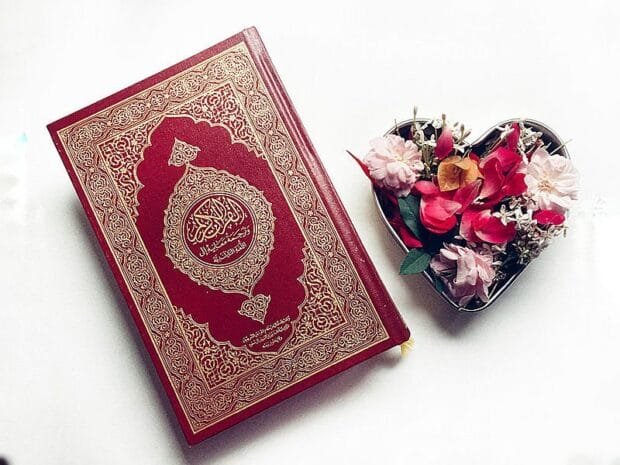(الضعف الجنسي، فقدان الرغبة، والحلول الشرعية)
🕌 مقدمة
الجنس في الإسلام ليس من المحرّمات ولا من المواضيع المخجلة، ما دام يُتناول بحياء وأخلاق، وفي إطار الزواج الشرعي. ومن بين الواقع الذي يواجهه بعض الأزواج المسلمين: الاضطرابات الجنسية مثل العجز الجنسي، فقدان الرغبة، الألم أثناء الجماع، وغيرها. وقد تؤدي هذه الاضطرابات إلى توتر زوجي، وإحباط، وشكوك روحية. والإسلام يعترف بهذه الحالات ويقدّم حلولاً تتماشى مع الإيمان، وعلم النفس، والطب.
📌 1. أهمية العلاقة الحميمة في الحياة الزوجية
العلاقة الجنسية تُعد من الحقوق الزوجية الأساسية في الإسلام. قال النبي ﷺ:
«وفي بضع أحدكم صدقة.»
— رواه مسلم
وهذا الحديث يدلّ على أن العلاقة الجنسية الحلال ليست فقط مباحة، بل لها أجر وثواب. ورفض أحد الزوجين للجماع بدون سبب شرعي قد يسبب خلافات وربما يكون إثماً. لذلك، من المهم الحفاظ على هذه العلاقة حتى عند وجود مشاكل.
🩺 2. العجز الجنسي (العجز الجنسي)
➤ التعريف:
العجز الجنسي هو عدم القدرة المستمرة على الحصول على انتصاب كافٍ لإقامة علاقة جنسية مرضية.
➤ رأي الإسلام:
العجز الجنسي ليس عيبًا، بل ابتلاء. ويوصي الإسلام بمراجعة الأطباء ولا يحرّم استخدام العلاجات الشرعية (أدوية، علاج سلوكي، أعشاب طبيعية).
قال تعالى:
«فاسألوا أهل الذكر إن كنتم لا تعلمون.»
— سورة النحل، الآية 43
👉 يشمل ذلك الأطباء والمتخصصين في حال كان السبب جسديًا أو نفسيًا.
➤ الحلول الشرعية:
- علاج طبي (بأدوية حلال)
- أعشاب طبيعية معروفة (كالزنجبيل، العسل، الحلبة…)
- نظام غذائي صحي وممارسة الرياضة
- علاج نفسي في حال وجود أسباب عاطفية أو توتر نفسي
- الرقية الشرعية (للحالات المرتبطة بالوسواس أو السحر)
💔 3. فقدان الرغبة الجنسية (الفتور الجنسي)
➤ الأسباب الشائعة:
- التعب، التوتر، مشاكل هرمونية
- خلافات زوجية
- الاكتئاب أو القلق
- صدمة نفسية أو حواجز عقلية
➤ المنهج الإسلامي:
كان النبي ﷺ يشجع على التودد واللطف والتهيئة قبل العلاقة، وقال:
«لا يقعن أحدكم على امرأته كما تقع البهيمة، وليكن بينهما رسول. قيل: وما الرسول؟ قال: القبلة والكلام.»
— رواه الدارقطني
👉 المداعبة واللطف لهما دور أساسي في إشعال الرغبة من جديد.
➤ نصائح عملية:
- الحوار الصريح بين الزوجين
- التهيئة النفسية والبدنية (نظافة، عطر، استرخاء)
- قراءة كتب أو نصائح إسلامية عن الحياة الزوجية
- تجنب الإباحية والمشتتات التي تضعف الرغبة الطبيعية
- الدعاء بأدعية خاصة (مذكورة أدناه)
🙏 4. الحلول الروحية والأدعية الموصى بها
➤ دعاء لتحسين العلاقة الزوجية:
رَبَّنَا هَبْ لَنَا مِنْ أَزْوَاجِنَا وَذُرِّيَّاتِنَا قُرَّةَ أَعْيُنٍ وَاجْعَلْنَا لِلْمُتَّقِينَ إِمَامًا
— سورة الفرقان، الآية 74
➤ الرقية الشرعية (للراحة النفسية والروحية):
- سورة الفاتحة
- آية الكرسي (البقرة 2:255)
- السور الثلاث الأخيرة: الإخلاص، الفلق، الناس
- دعاء نبي الله أيوب عليه السلام:
رَبِّ إِنِّي مَسَّنِيَ الضُّرُّ وَأَنتَ أَرْحَمُ الرَّاحِمِينَ
— سورة ص، الآية 41
💬 5. متى يجب مراجعة المختصين؟
الإسلام يحث على طلب العلاج من الوسائل المباحة وعدم كتمان الألم. قال النبي ﷺ:
«ما أنزل الله داءً إلا أنزل له شفاء.»
— رواه البخاري
👉 وإذا استمر الاضطراب، يُنصح بشدة بمراجعة:
- طبيب مختص (أخصائي مسالك بولية، نساء، هرمونات)
- معالج نفسي مسلم أو يحترم القيم الإسلامية
- إمام أو مستشار أسري للدعم الروحي
🤝 6. دور الزوج/الزوجة: الصبر، الإصغاء، والدعم
يوصي الإسلام بأن يسود بين الزوجين الرحمة والتفاهم. فالعلاقة الجنسية ليست مجرد فعل جسدي، بل تعبير عن المحبة والسكينة التي يمنحها الزواج.
قال تعالى:
وَجَعَلَ بَيْنَكُم مَّوَدَّةً وَرَحْمَةً
— سورة الروم، الآية 21
✅ الخاتمة
الاضطرابات الجنسية لا ينبغي أن تكون مصدرًا للعار، بل ابتلاء يُواجه بالإيمان والعلم والحكمة. فالإسلام يقدم إطارًا متوازنًا يجمع بين الروحانية والرحمة والانفتاح على الطب. البحث عن حلول شرعية، والحوار بين الزوجين، والدعم الروحي والطبي يمكن أن يعيد الانسجام إلى الحياة الزوجية.




